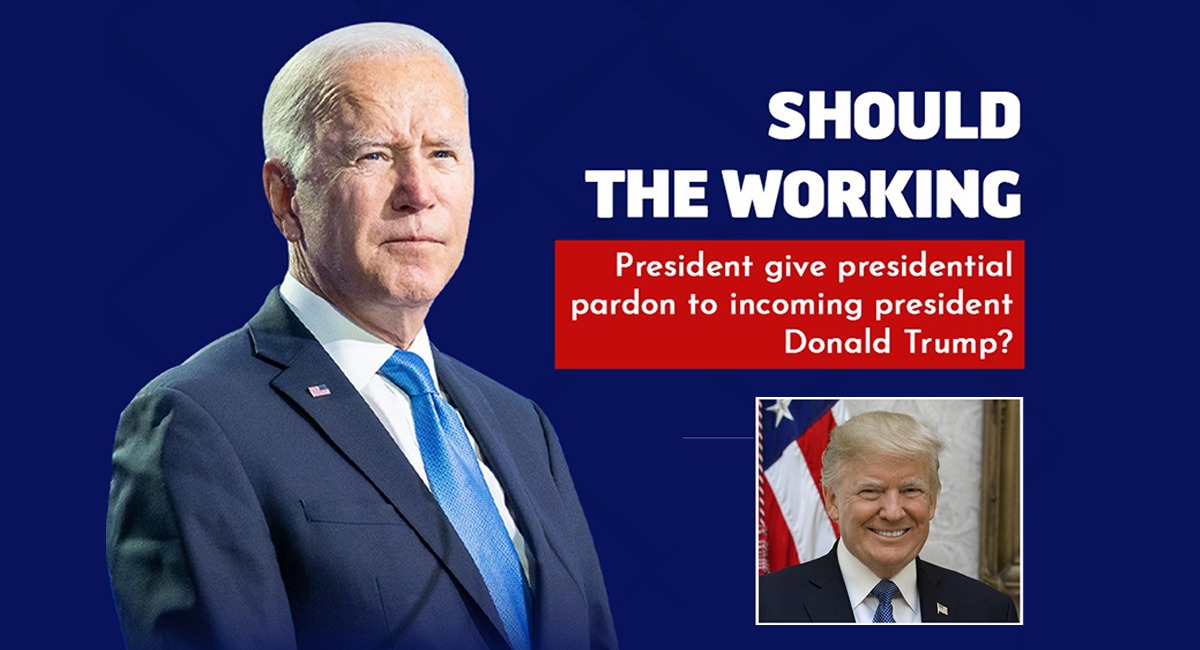
Free Shipping on Orders ₹ 499/- or above

From a political and practical standpoint, however, the question of a presidential pardon is highly complex. Here’s an analysis of both sides:
Healing National Divides: A pardon could send a powerful message of reconciliation in a nation deeply polarized by political and ideological differences.
Similar to Gerald Ford’s pardon of Richard Nixon, this act could set a precedent of prioritizing national unity over retribution.
By showing mercy, Biden could elevate his legacy as a leader who prioritized the nation’s long-term stability and integrity.
Critics may argue that pardoning Trump undermines the principle of accountability, particularly if the charges involve serious violations of law.
Such an action could alienate a significant portion of Biden’s supporters who may view a pardon as letting Trump off the hook.
Pardoning Trump could set a precedent where high-ranking officials feel immune to consequences, potentially eroding public trust in the rule of law. Legal and Procedural Feasibility
The U.S. Constitution grants the President the power to pardon individuals for federal crimes. This includes charges where a sentence has been waived, as long as a conviction or criminal charges exist.
However, if the hush money case involves state charges (e.g., charges under New York state law), Biden’s power would not apply. In such a scenario, only the state governor could grant clemency.
If Biden decides to pardon Trump, he could issue a full pardon, absolving Trump of all legal consequences associated with the charges.
Alternatively, Biden could issue a conditional pardon, which might require Trump to acknowledge his actions or meet specific terms.
Moral and Political Implications
Forgiveness is a key virtue, especially for those in power. By pardoning Trump, Biden could demonstrate compassion and magnanimity, transcending political rivalries for the greater good.
This act could also reflect the principle of “Kshama” (forgiveness) while fostering harmony and reducing animosity in an increasingly polarized society.
A pardon could be seen as an effort to unify a fractured nation and move beyond past conflicts.
Some might perceive the pardon as a sign of weakness or as undermining accountability for actions taken by a leader.
Yes, Biden can proceed with a federal pardon if Trump’s charges fall under federal jurisdiction. However, if the charges involve state law, Biden has no authority, and the matter would rest with state officials.
If Biden chooses this path, he could frame the pardon as a step toward healing and reconciliation. For example, he could pair the pardon with a public statement emphasizing the need for accountability in governance while affirming the values of forgiveness and national unity.
Ultimately, while Biden has the constitutional authority to pardon Trump in federal cases, his decision would carry profound legal, moral, and political implications.




To purchase these products pls visit our home page





